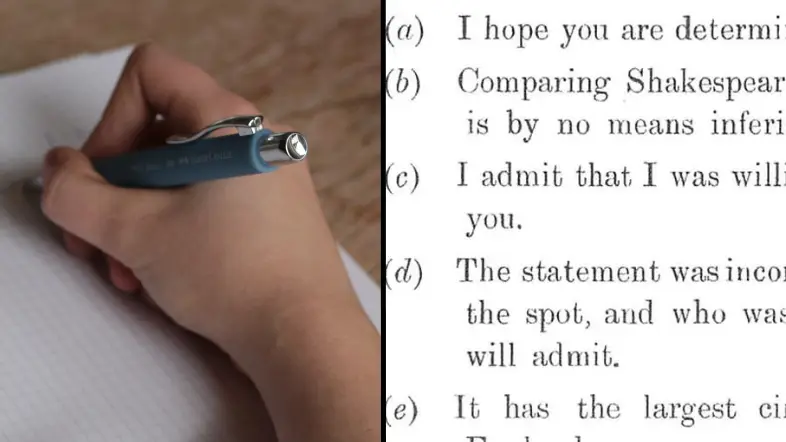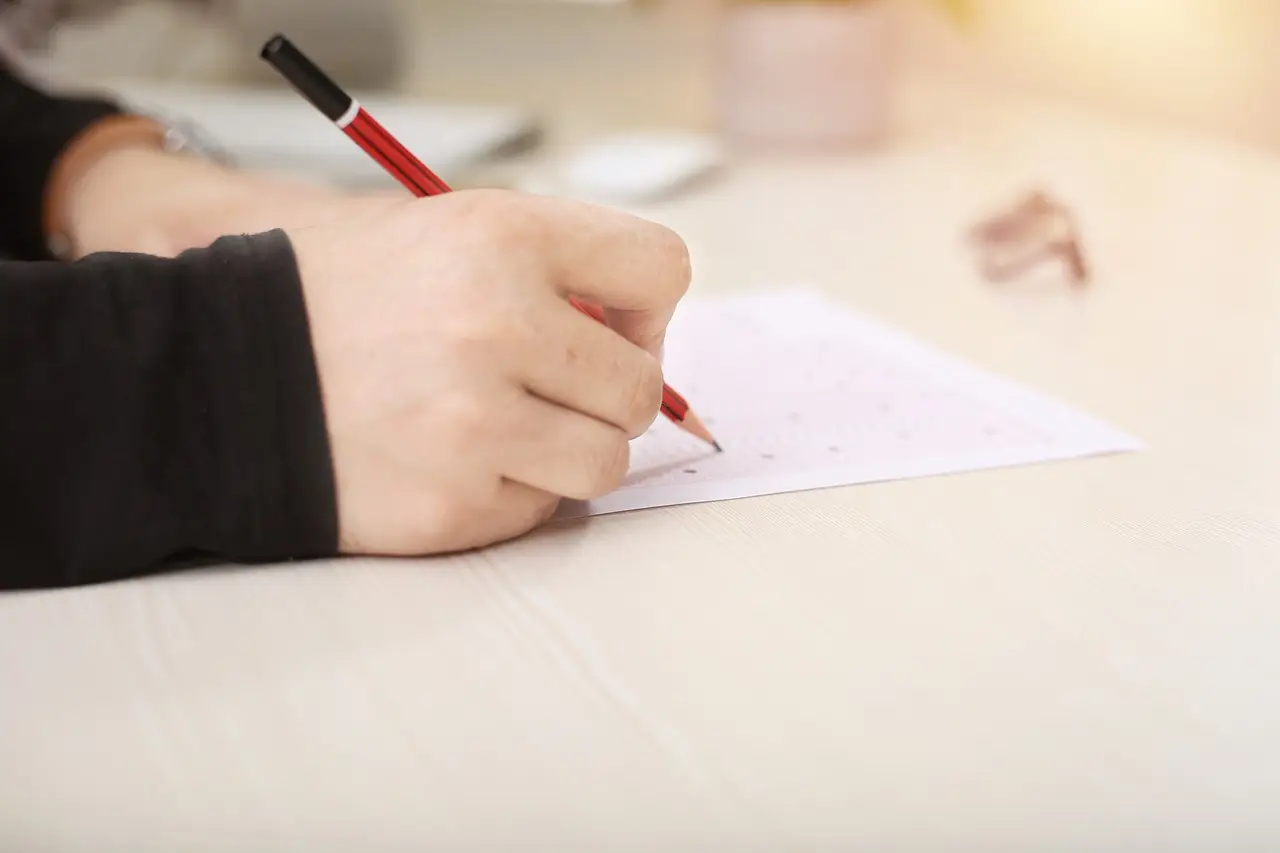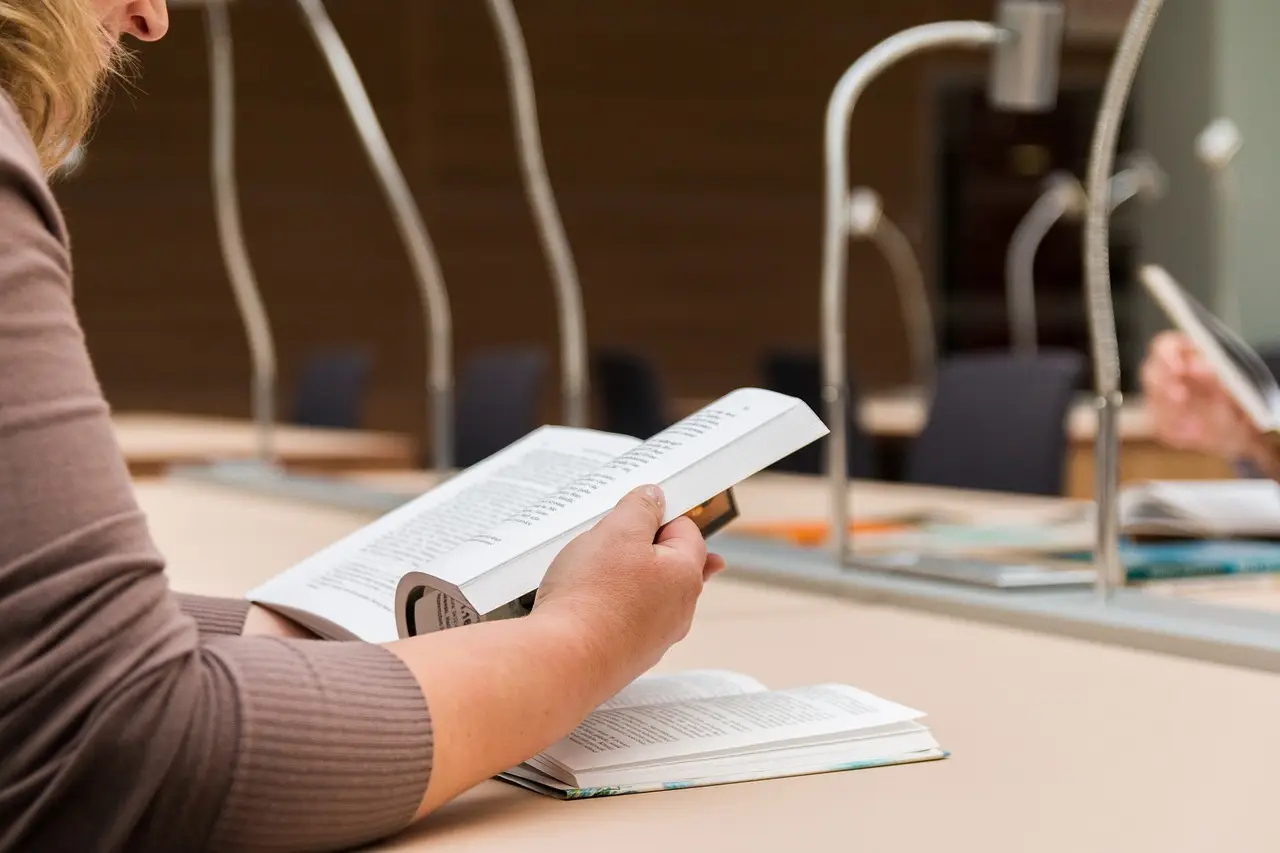
To mark the 110th anniversary of their English exams, Cambridge University released part of an exam they had students sit in 1913.
And needless to say, many people are stumped.

In 1913, only three students took the Certificate of Proficiency in English for £3 a go and with 12 hours to complete.
Advert
It tested students on translation, dictation and phonetic transcription.
These exams are now taken by 6.1 million people every year.
So...you ready to see the question that has modern people scratching their heads?
'Correct or justify four of the following sentences, giving your reasons:
(a) I hope you are determined to seriously improve
(b) Comparing Shakespeare with Aeschylus, the former is by no means inferior to the latter
(c) I admit that I was willing to have made peace with you
(d) The statement was incorrect, as any one familiar with the spot, and who was acquainted with the facts, will admit
(e) It has the largest circulation of any paper in England
(f) The lyrical gifts of Shakespeare are woven into the actual language of the characters
Francesca Woodward, managing director for English at Cambridge University Press & Assessment, said: "From just three candidates, we now open doors for millions of people every year to learn and teach English.
"The historical papers from our archives paint a fascinating picture of how much has changed when it comes to learning English with Cambridge.
"The original papers were a revolution in English language assessment, setting clear goals and emphasising the ability to use the language."

The question prompted debate about which generation has it easiest when it comes to university exams.
Oh goody, another argument about who had it hardest - that never gets old.
One person remarked: "You see, you're not actually testing anything important here."
Somebody else replied: "Analysing critically is one of the most important skills one can have. Unfortunately, people don't value that skill anymore."
Another commenter wrote: "Testing has improved a lot since then. Nowadays questions are more context based, and they try to evaluate your ability to use the language not the grammar and from knowledge alone."
"So just nothing except punctuation, spelling and appropriate use of words? The very thing taught in elementary school?" Another person wrote, "And my parents thought I was lying when I said there was just something wrong with my homework."
Another fumed: "As others have worked out above, there is nothing 'generational' of note with the corrections.
"Unless you are talking about the utter lack of respect for grammar and punctuation knowledge from younger generations? They have made up a new shorthand, which is pretty genius, but looks and sounds really dumb."
Ooh, burn - as the younger generations would say.
Okay, so do you want to know what the answers were?

Here you go.
(a) This is a split infinitive, so should be avoided in formal writing and back in 1913 would have been considered wrong. The correct sentence would be: 'I hope you are determined seriously to improve.'
(b) This is wrong because it is a hanging participle, which unintentionally modifies the wrong noun in a sentence. Instead, you could say, 'Shakespeare is by no means inferior to Aeschylus,' or 'Shakespeare is just as good as Aeschylus.'
(c) The tenses are wrong: it should be 'to make peace'.
(d) 'Would admit' instead of 'Will admit' is probably what they were looking for.
The last two questions were correct but students would have been required to explain why no changes were needed.
If you got them right, congratulations.
The rest of us will go on feeling dumber than we did before - thanks Cambridge.
